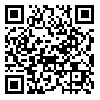چهارشنبه 30 مهر 1404
[Archive]
دوره 12، شماره 3 - ( 5-1403 )
جلد 12 شماره 3 صفحات 240-231 |
برگشت به فهرست نسخه ها
Download citation:
BibTeX | RIS | EndNote | Medlars | ProCite | Reference Manager | RefWorks
Send citation to:



BibTeX | RIS | EndNote | Medlars | ProCite | Reference Manager | RefWorks
Send citation to:
AdibSaber F, Ansari S. Comparing the Influence of an Aqua-based Versus a Mindfulness-based Kata Techniques Training on Sleep Habits and Stereotypic Behaviors in Children With Autism. PCP 2024; 12 (3) :231-240
URL: http://jpcp.uswr.ac.ir/article-1-906-fa.html
URL: http://jpcp.uswr.ac.ir/article-1-906-fa.html
Comparing the Influence of an Aqua-based Versus a Mindfulness-based Kata Techniques Training on Sleep Habits and Stereotypic Behaviors in Children With Autism. Practice in Clinical Psychology. 1403; 12 (3) :231-240
چکیده: (2086 مشاهده)
Objective: The present study aims to compare the effectiveness of aquatic and karate training programs on sleep habits and stereotypic behaviors in children with autism spectrum disorder (ASD).
Methods: This research was a quasi-experimental study with a pre-test/post-test design, with two intervention groups and one control group. The statistical population included all boys with ASD who were a member of the Autism Institute in Rasht City, Iran, in 2019. Of whom 30 individuals were selected using the purposive sampling method. Thirty children with autism (8–14 years) were randomly divided into karate exercise (n=10), aquatic training (n=10), and wait list control (n=10) conditions. The training groups practiced for 10 weeks, two sessions of 60 minutes per week. Karate exercises involved mindfulness Taikyoku Jodan Kata, consisting of blocking, punching, sticking, and kicking moves against an imaginary opponent. Aquatic training was a group intervention, including orientation training, basic swimming skills, and free swimming. Children’s sleep habits questionnaire (CSHQ, 2000) and stereotype subscale of the Gilliam autism rating scale (GARS-2, 2006) were completed by parents during pre-and post-intervention. Analysis of variance for repeated measures was utilized for data analysis.
Results: The results indicated that both training interventions have a significant positive effect on stereotypic behaviors compared to the pre-intervention and control groups (P<0.01). We also found that the aquatic exercise group obtained better scores (P<0.001) and two subscale scores (sleep anxiety (P<0.001) and Parasomnias (P<0.05)) than the kata techniques training group, but no significant group effects were observed regarding the other subscales.
Conclusion: It is recommended to provide a suitable environment at school or institute for children with ASD to participate in physical activities, such as aquatic and karate exercises to alleviate repetitive behaviors. Furthermore, it is suggested to use aqua-based training as a complementary approach in the field of improving common problems, such as the sleep habits of children with ASD.
Methods: This research was a quasi-experimental study with a pre-test/post-test design, with two intervention groups and one control group. The statistical population included all boys with ASD who were a member of the Autism Institute in Rasht City, Iran, in 2019. Of whom 30 individuals were selected using the purposive sampling method. Thirty children with autism (8–14 years) were randomly divided into karate exercise (n=10), aquatic training (n=10), and wait list control (n=10) conditions. The training groups practiced for 10 weeks, two sessions of 60 minutes per week. Karate exercises involved mindfulness Taikyoku Jodan Kata, consisting of blocking, punching, sticking, and kicking moves against an imaginary opponent. Aquatic training was a group intervention, including orientation training, basic swimming skills, and free swimming. Children’s sleep habits questionnaire (CSHQ, 2000) and stereotype subscale of the Gilliam autism rating scale (GARS-2, 2006) were completed by parents during pre-and post-intervention. Analysis of variance for repeated measures was utilized for data analysis.
Results: The results indicated that both training interventions have a significant positive effect on stereotypic behaviors compared to the pre-intervention and control groups (P<0.01). We also found that the aquatic exercise group obtained better scores (P<0.001) and two subscale scores (sleep anxiety (P<0.001) and Parasomnias (P<0.05)) than the kata techniques training group, but no significant group effects were observed regarding the other subscales.
Conclusion: It is recommended to provide a suitable environment at school or institute for children with ASD to participate in physical activities, such as aquatic and karate exercises to alleviate repetitive behaviors. Furthermore, it is suggested to use aqua-based training as a complementary approach in the field of improving common problems, such as the sleep habits of children with ASD.
| بازنشر اطلاعات | |
 |
این مقاله تحت شرایط Creative Commons Attribution-NonCommercial 4.0 International License قابل بازنشر است. |



